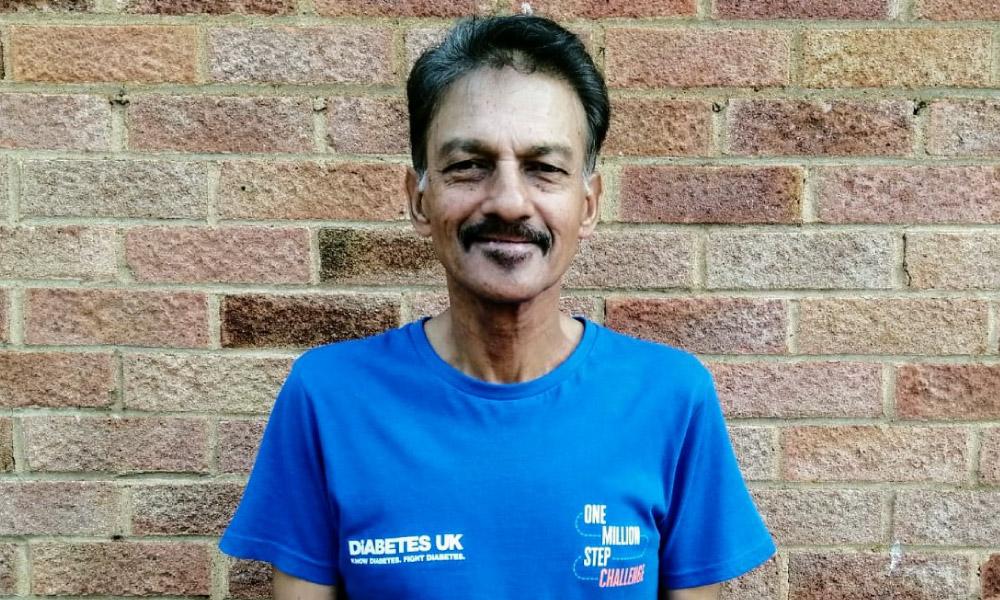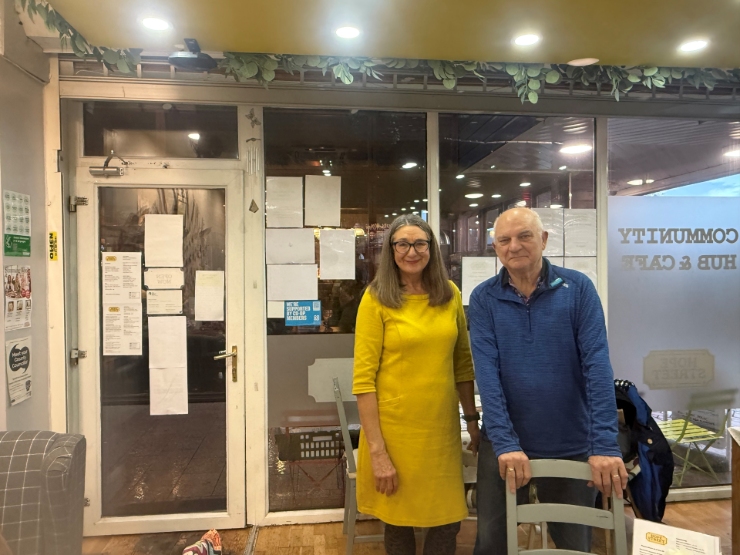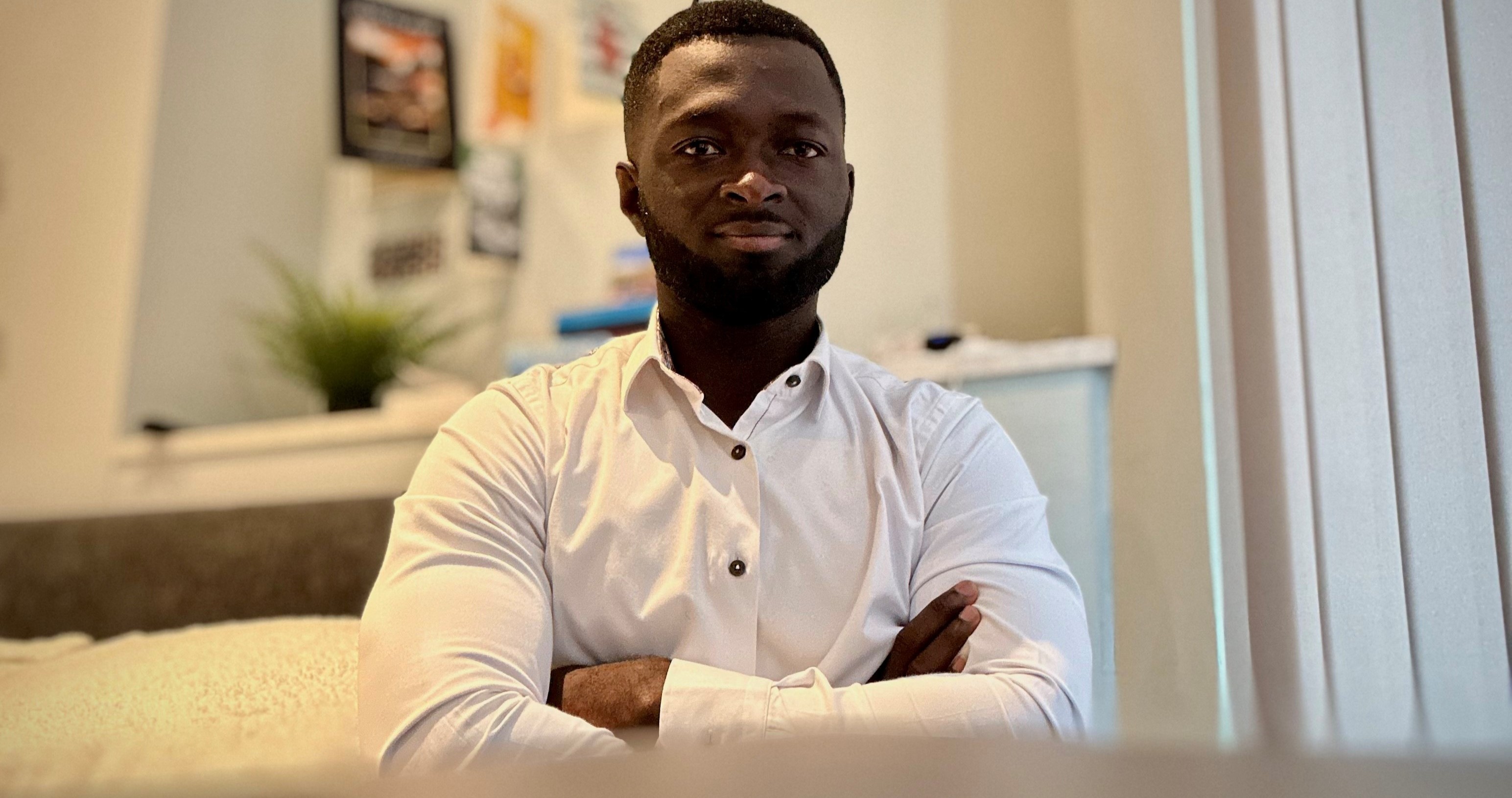
“I said to him that he was the one who deserved the praise for listening and changing his life around. But it was so heart-warming to hear that I had helped him.”
Meet our Volunteer Spotlight for August 2020, Abdul Rais
How it all began - A life changing diagnosis
“I had never volunteered for anything prior to being diagnosed with type 2 diabetes 20 years ago. I had stomach pains and went into hospital with suspected appendicitis, which turned out to be an abscess. Looking back now, I had all the signs and symptoms of diabetes. They took a fasting blood test and it came out very high at 30 mmol/l. I was told that I could have gone into a diabetic coma. Those words sent a shiver down my spine.”
Abdul spent two weeks in hospital. He was given information to take away, and some of the booklets he was given were produced by us. “I was put onto insulin and was getting hypos left right and centre. I reached out to the Diabetes UK helpline and found the advice so helpful.”
Not long after, Abdul found out about our volunteering opportunities. “I decided to volunteer because I thought that there must be many others who weren’t aware of diabetes like me. I made up my mind that raising awareness of diabetes would be my mission in life. Wherever I go, I talk about diabetes.”
Role as a Community Champion
Abdul became a Community Champion and found out that there was a higher risk of developing type 2 diabetes in South Asian people, as well as Black African and African-Caribbean people.
“The training I received to be a Community Champion dispelled many of the myths around diabetes. I had thought that diabetes was just related to sugar for example. As a Community Champion, we raise awareness about what you can do to reduce your risk of type 2 diabetes. This includes cutting down on certain foods such as chapattis and rice as part of a balanced diet. We talk about what diabetes is and we explain the difference between type 1 and type 2. We talk about how diabetes is managed and the health complications that can develop.”
Abdul usually sources his own talks. “The best places for gathering are places of worship; mosques and temples. I’ll build up a relationship with the chair or committee members and arrange to give talks through them or announce the talk at gatherings on a Friday.”
Abdul is a qualified interpreter and being multi-lingual is helpful when he is reaching out to communities. “I am able to talk in other languages such as Urdu and Punjabi. That makes it easier when speaking to a mixed audience as I can switch from one language to another to make sure the message gets across.”
Raising awareness over the airwaves, from the UK to Pakistan
Abdul has also helped raise awareness of diabetes in the media. He has spoken to Asian TV and radio channels. In 2016, this led him to be approached by a diabetes organisation in Pakistan and he was invited to go to there to give a series of talks. This is something he says was a “fantastic experience.”
For the past 11 years, Abdul has hosted two radio shows on Radio Ramadan FM in Milton Keynes. He speaks in English and Urdu and, more recently, the shows have been streamed on Facebook so the number of listeners are increasing. Abdul talks about different health issues including diabetes and finds guest speakers each week.
Abdul really enjoys doing the radio shows. A radio station in Lancashire recently heard him on the radio and approached him about doing a show for them. He did his first show in July and will continue every Sunday.
Adapting since the coronavirus outbreak
Since the coronavirus lockdown, Abdul could no longer go to the studio to do the radio shows and has needed to adapt to doing it from home.
He’s also planning to do an online talk at the end of August. “I’ve approached a few mosques and temples and invited them to join. I’m hoping that the talk will go well and more online talks will follow.”
Abdul volunteers as part of the committee of his local support group. They are not currently able to hold their monthly meetings and are looking at ways they can hold online group meetings instead.
A stand-out moment
Abdul remembers an occasion about 10 years ago. He was on holiday with his family and on a coach on the way to the Lake District. The bus stopped for a break and it was pouring down with rain so Abdul stayed on the coach and spoke to the driver. It turned out that the driver had type 2 diabetes, a young family, and was finding it hard to control his blood glucose levels. He was getting home from work and falling asleep, exhausted. Abdul spoke to the coach driver for about an hour and half and gave some suggestions of changes he could make to improve his lifestyle.
Four months later, the driver phoned Abdul to thank him. He said that the conversation had transformed his life. He had decided to cut down on certain foods to improve his diet and he had lost a stone in weight. “I said to him that he was the one who deserved the praise for listening and changing his life around. But it was so heart-warming to hear that I had helped him.”
Fundraising challenges and what’s next?
So what’s next for Abdul? He’s going to continue to raise awareness of diabetes whenever he can. He’s also taking part in our One Million Steps Challenge. Walking has become part of his daily routine for the last 20 years so it was a challenge he was keen to take on.
“I originally signed up to do half a million steps and had target of raising £500. I’ve completed the half a million steps so I’m now walking to one million! I’ve raised my fundraising target to £1,000. I’m walking over 10,000 steps on some days so I’m about two weeks ahead of schedule.”
If you’ve been inspired by Abdul’s story, find out how you can get involved and volunteer with us.


